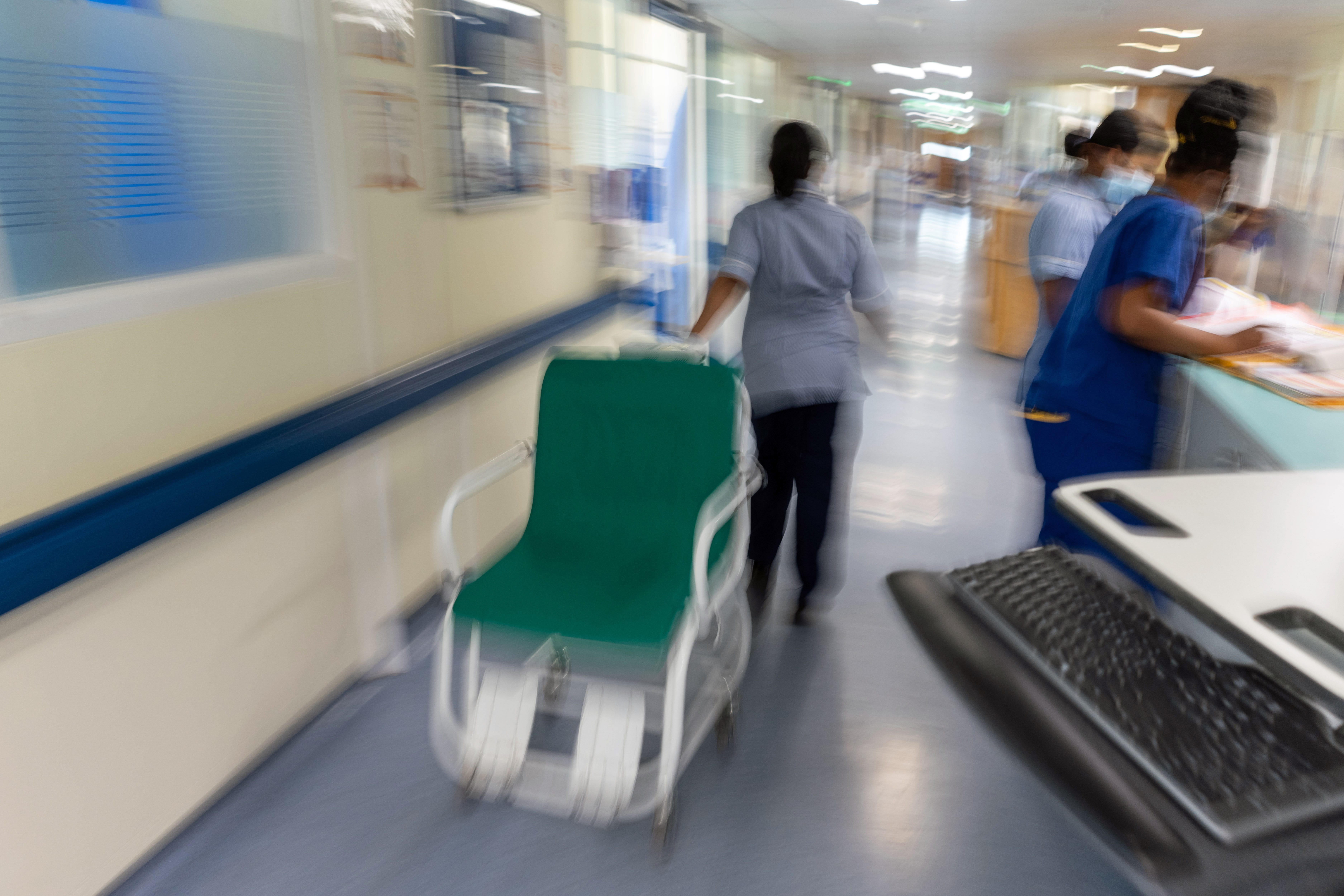‘Twin crises’ faced by NHS holding back performance, report warns
A new report highlights concerns over staff turnover and a dip in productivity.

Your support helps us to tell the story
From reproductive rights to climate change to Big Tech, The Independent is on the ground when the story is developing. Whether it's investigating the financials of Elon Musk's pro-Trump PAC or producing our latest documentary, 'The A Word', which shines a light on the American women fighting for reproductive rights, we know how important it is to parse out the facts from the messaging.
At such a critical moment in US history, we need reporters on the ground. Your donation allows us to keep sending journalists to speak to both sides of the story.
The Independent is trusted by Americans across the entire political spectrum. And unlike many other quality news outlets, we choose not to lock Americans out of our reporting and analysis with paywalls. We believe quality journalism should be available to everyone, paid for by those who can afford it.
Your support makes all the difference.The NHS is “struggling to get firing on all cylinders”, experts have said after a new report highlighted the “twin crises” of low productivity and poor staff retention in the health service.
The Institute for Public Policy Research (IPPR) warned that the “return on public investment has weakened since the pandemic”.
It said that restoring NHS productivity to pre-pandemic levels would have freed up £19 billion in 2023/24 – enough to build 900 new health centres.
The think tank said that more money for the service is “not leading to many more patients being treated overall” and at the same time workers are “calling it quits”.
We all know the NHS needs reform, but we keep getting distracted by the same red herring debates. The real issue is that we’re struggling to get the NHS firing on all cylinders again
“Staff churn and discontent leads to high costs and holds back care, while widespread workplace inefficiencies drive staff dissatisfaction,” the authors of a new IPPR report have said.
The IPPR said that the health service in England could unlock £3.8 billion a year if it meets its 2% productivity target.
Meanwhile, thousands more staff would have stayed in post had turnover rates remained the same as they were in 2009/10, the IPPR said.
It comes after a separate study found that thousands of patients could be dying every year due to the high turnover of nurses and doctors in the NHS.
High staff turnover can mean worse care for patients, while a reliance on agency staff to plug gaps in rotas means there is a lack of continuity of care and a lack of expertise, experts wrote in the BMJ.
The new IPPR report suggests that the service is lacking key information from staff on the front line.
This “lack of staff voice” is behind the two issues highlighted in the report, the authors claim.
“It is why decision-makers spend money on locum doctors when what is needed are computers; purchase new software before a discharge co-ordinator; and top up winter crisis funding but not community services to keep people well,” they wrote.
Giving workers a greater say is “key” to boosting productivity and increasing staff retention, the think tank said.
“After years of mounting pressures, the NHS is facing two major challenges: high levels of frustration among staff, and low productivity which is taking a toll on patients,” said IPPR research fellow and a current NHS doctor, Dr Annie Williamson.
“By addressing these issues, we could unlock billions worth of better healthcare. More importantly, this would create a more efficient and sustainable health service, where staff voice is central to improving the quality of decisions throughout the NHS.”
Dr Parth Patel, associate director of democracy and politics at the IPPR, added: “We all know the NHS needs reform, but we keep getting distracted by the same red herring debates. The real issue is that we’re struggling to get the NHS firing on all cylinders again.
“Too many decisions are made at the top, while those on the front lines — who truly understand what’s needed — are left with little say. The status quo isn’t working. We need to empower NHS staff with a genuine voice and a real stake in the decisions that affect them. Only then can we unlock the NHS’s full potential again.”
The latest performance data for the NHS in England shows that some 6.34 million patients were waiting for 7.57 million pre-planned hospital appointments at the end of September.
Health minister Karin Smyth said: “We are investing over £2 billion in NHS technology and digital improvements to increase productivity so patients get more out of it for what taxpayers put in.
“The new package of reforms announced last week will ensure every penny of extra investment into the NHS is well spent and cuts waiting times for patients and drives the health service to improve efficiency.
“Our 10-year Health Plan will also get more bang for taxpayers’ buck and make the NHS fit for the future.”